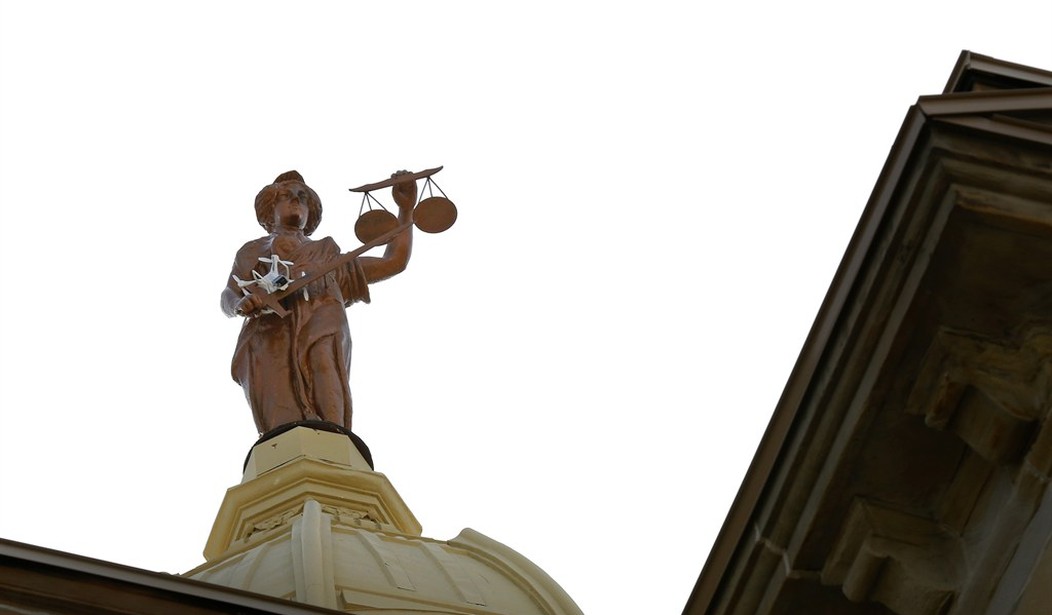A bedrock principle of American justice is that every defendant is treated the same.
That is a promise often honored more in the breach than reality. The rich can afford better attorneys. Celebrities get break after break not afforded to ordinary folk.
But as citizens, we still expect courts to do everything they can to preserve the ideal of equal justice under law -- and certainly not to openly flaunt it when they deviate.
Sadly, that is precisely what is happening in Texas, where Tarrant County District Judge George Gallagher has ordered the county to pay $254,908.55 to three special prosecutors for the work they have done so far in building a criminal case against state Attorney General Ken Paxton.
The problem is, as Watchdog.org’s Jon Cassidy has reported, under state law special prosecutors are supposed to be paid according to the regular county fee schedule for indigent defendants: $1,000 for pretrial work, $1,000 a day for trial, and a discretionary $1,000 bonus if a judge deems it appropriate. The payment schedule was amended just last year to state it should be followed “without exception.”
Disparate treatment is a fact of human nature. That's why safeguards are built into the legal process -- to ensure such treatment does not become institutionalized.
Throwing out explicit safeguards to ensure disparate treatment is utterly the reverse of the way the system is supposed to work. Judge Gallagher has decided, in effect, that prosecuting the state’s attorney general is worth more – a higher priority -- than providing counsel for people facing the death penalty.
Recommended
Examples from history do not shine a positive light on such actions.
In 1850, as part of a compromise package of bills intended to preserve comity between the North and South, Congress passed and President Millard Fillmore signed into law the Fugitive Slave Act, perhaps the worst piece of legislation ever enacted in American history.
For all its many faults, one provision stood out as a blatant violation of the principle of equal justice, even in the context of its own time.
Commissioners empowered to hear and decide fugitive slave cases were paid $10 if they ruled that the fugitive should be returned to slavery. If they found for the fugitive and the result was freedom, commissioners receive $5.
Most of the commissioners were appointees of pro-slavery Democratic administrations and were inclined to send fugitives back into bondage in any case. But the inclusion in law of a perverse incentive to do so was counter to every principle of American justice, even a justice that defended slavery to begin with.
The justification for the higher payment? More paperwork was involved if the fugitive was returned to bondage.
Of course, the scope of the offense in question in the Paxton case is in no way comparable to that yielded by the odious Fugitive Slave Act.
But the principle – as an illustration, not a comparison -- is the same. In each, a judge has been empowered to obtain or provide a bonus: to himself in the case of the 1850 law, to whomever he chooses -- friend, associate or political ally – in the Paxton case.
A criminal prosecution in this case is dubious to begin with. Paxton has already admitted responsibility and accepted a $1,000 fine for soliciting an investor without being registered on a state list. But Texas is no stranger to politically motivated prosecutions: Just ask former House Majority Leader Tom DeLay and former Gov. Rick Perry.
A jury or a judge will eventually decide the efficacy of the charges against the attorney general.
But the manner in which the prosecution is being paid raises serious questions about the fairness of the process.
John Bicknell is executive editor of Watchdog.org and author of “America 1844: Religious Fervor, Westward Expansion and the Presidential Election That Transformed the Nation.”
























Join the conversation as a VIP Member